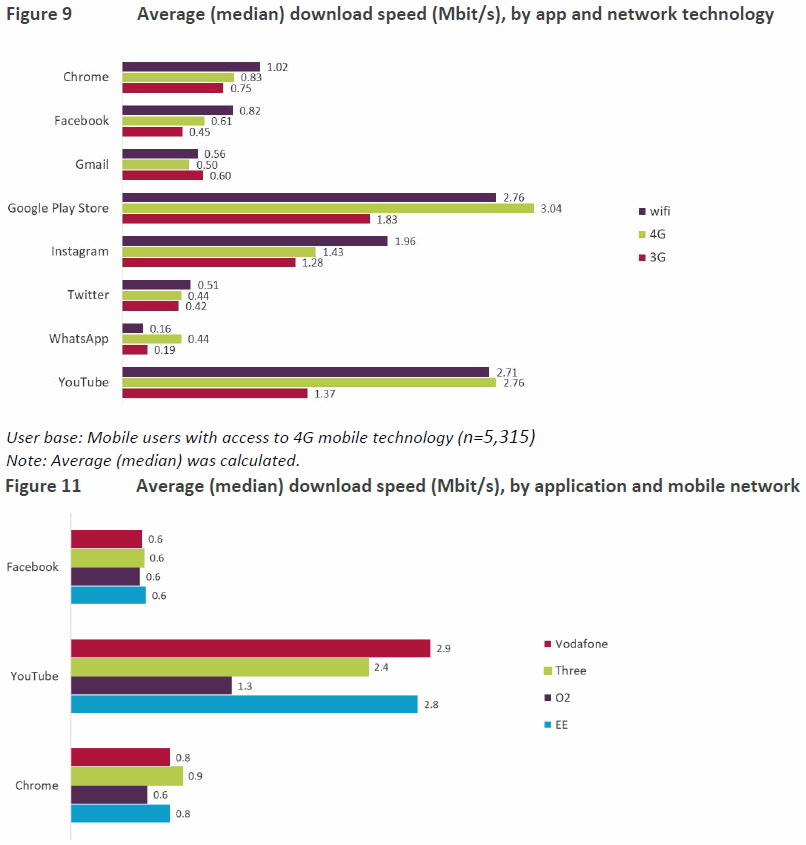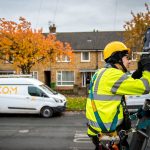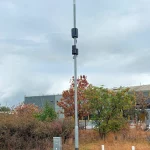Ofcom Study Tests O2, Three UK, Vodafone and EE Mobile Performance
The latest 2018 Consumer Mobile Experience report from Ofcom has used crowdsourced data to reveal some interesting details about the performance of 3G and 4G mobile networks in the United Kingdom, which among other things finds that 86% of urban vs only 73% of rural users are satisfied with their service.
Ofcom’s research was gathered from a panel of Android smartphone users who had installed an app on their phone, which between 23rd September 2017 and 23rd December 2017 collected information about how people use their device and mobile network. Some 5,315 people met their requirements and were included in the overall panel for this year’s report (up by 24% since last year).
On top of that the national regulator also chose a sub-panel comprised of 800 randomly selected panellists per network to help them compare the performance of O2, Three UK, Vodafone and EE in different areas (total panel size of 3,200). “Results provided in this report are a good reflection of the overall consumer experience of UK Android users,” claims Ofcom.
Advertisement
Unsurprisingly the study found that the average (median) download speed (Mobile Broadband) consumers experienced when using their mobile phones varied significantly by application and, more interestingly, sometimes also by operator. For example, the average (median) download speeds of connections to Chrome, Facebook, Gmail, Twitter and WhatsApp were all less than 1Mbps, whether the connection was via cellular network or wifi.
The above is to be expected because such apps only use a tiny amount of data. By comparison average download speeds for more data-heavy apps (e.g. YouTube and Google Play Store) were higher, between 2.7Mbps and 3.0Mbps over 4G networks and wifi, with 3G connections significantly slower on 1.4Mbps and 1.8Mbps respectively.

O2 came out as being the slowest for some of the above apps, although this doesn’t actually tell us all that much because even 1.3Mbps on YouTube will be nearly enough to run video streams in 720p (HD) and on a Smartphone that’s fine. The variable nature of video streaming also makes it difficult to know whether this difference is due to the web server, the mobile network or the balance of how different customers use the service(s).
Advertisement
Elsewhere Ofcom found that the average latency time (lower is better) in milliseconds of a typical WiFi network was 25ms, which increases to 50ms on a 4G connection and 60ms on 3G (generally anything under 100ms should be fine for the vast majority of online tasks). Now on to some general highlights..
Key Findings
• Three-quarters of the time, data connections were made to a wifi rather than to a cellular network. For 75% of the time Android users with access to 4G mobile technology were using apps, they were connected to wifi. There were no significant differences in this measure by rurality or nation. Consumers on the Three and EE mobile networks spent significantly less time on wifi than those on the O2 or Vodafone mobile networks.
• When accessing a cellular network, a 4G network was available for data use for more than 80% of the time. When consumers used a data application on a mobile network, 81% of this time was spent on a 4G network, with consumers in urban areas spending significantly more time than those in rural areas on 4G networks (83% vs. 73%).
• There were some variations by mobile network in the amount of time that consumers were connected to different mobile technologies. Consumers on the Three mobile network were connected to 4G for 66% of the time, whereas consumers on the EE mobile network were connected to 4G for 92% of the time.
• 3G data connections were around five times as likely to fail as 4G data connections. Consumers with access to 4G mobile technology were able to successfully connect to a 4G network on 98.7% of occasions when they attempted to do so. However, the successful connection rate was significantly lower when they tried to use a 3G network (93.1% of occasions).
• Data connections were more likely to fail in peak periods. There was a strong correlation between the number of data connection tests per hour and the percentage of failed tests, for users connected to both 3G and 4G networks, with the proportion of failed tests higher on 3G networks. In peak periods, once initiated, the average failure rate for 4G data connections was 1.5%; for 3G connections it was 7.2%.
• The average download speed delivered varied significantly by application. The average speed of connections to Chrome, Facebook, Gmail, Twitter and WhatsApp were all less than 1Mbit/s, whether the connection was via wifi, 4G or 3G. YouTube and Google Play Store connections were between 2.7Mbit/s and 3.0Mbit/s over wifi and 4G, with 3G connections significantly slower. These average speeds are all sufficient to give a satisfactory user experience; for example, the speed required for the lowest video quality on YouTube is 0.7Mbit/s, which increases to 2.5Mbit/s for HD 720p video resolution.
• There were some variations in speed by mobile network. For both YouTube and Chrome, the average download speeds (combined 3G and 4G) on the O2 mobile network were significantly slower than on the other three networks.
• There were some indications of slowing speed in peak periods. There was a correlation between the number of tests and the average 4G download speed of data connection for Chrome and YouTube, with speeds slowing down in peak hours. The average speed was 28% higher during off-peak times for Chrome, and 34% higher for YouTube.
• Once initiated, less than 1% of all voice calls were dropped due to loss of service. There were no significant differences by rurality or nation.
• More than eight in ten Android smartphone users (84%) were satisfied with the overall network performance of their mobile provider. Urban users were more satisfied than rural users (86% vs. 73%), while users in England were more satisfied than those in the other nations.
• Web browsing was the most important activity that people used their phone for, followed by voice calls. Overall, 92% of Android users said web browsing was ‘extremely’ or ‘very’ important, while three-quarters said the same for voice calls.
Ofcom 2018 Mobile Experience Report
https://www.ofcom.org.uk/../consumer-mobile-experience-2018.pdf
Mark is a professional technology writer, IT consultant and computer engineer from Dorset (England), he also founded ISPreview in 1999 and enjoys analysing the latest telecoms and broadband developments. Find me on X (Twitter), Mastodon, Facebook, BlueSky, Threads.net and Linkedin.
« ISP TalkTalk Identifies the Most Common Online UK Frauds
ISPA Asks You to Choose Your UK Internet Hero for 2018 »
















































Comments are closed